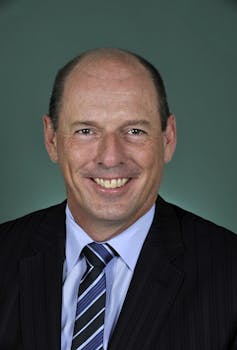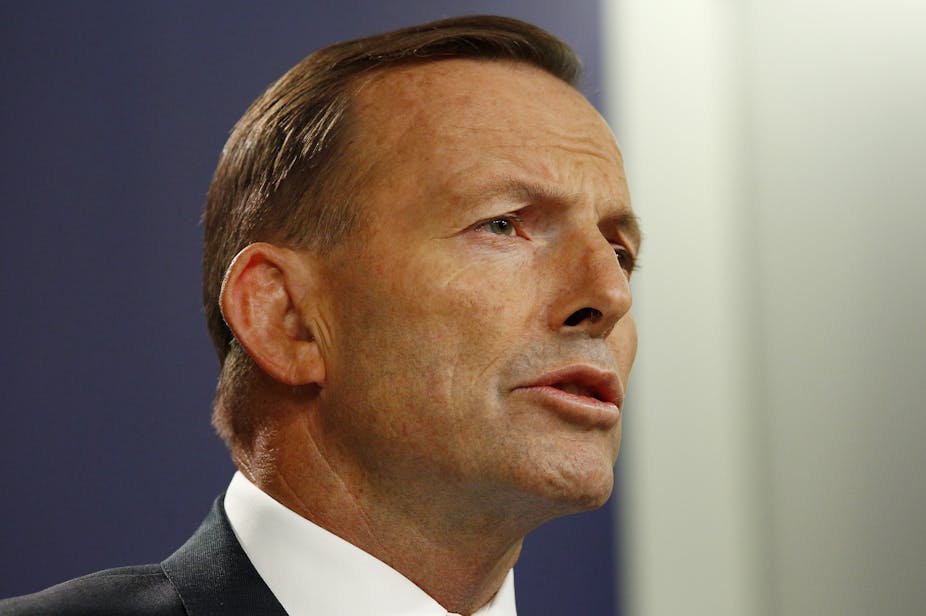It is difficult to pinpoint a specific reason to explain the leadership crisis presently gripping the federal Liberal Party. Why is it that Prime Minister Tony Abbott is facing a leadership spill only 17 months after having led his party to government? Why is it that individuals within the Liberal party room are willing to trigger a leadership spill when such actions proved so deeply destabilising for the federal Labor Party in 2010 and 2013?
Some put it down to an “unfair” set of policies; others – including cabinet minister Andrew Robb – say the government failed to prepare the public for its agenda. And then there’s the leader himself.
Abbott, if media reports are to be believed, is arrogant, a poor communicator, a bully, a micro-manager and poor listener, and hopelessly captured by his ministerial staff – in particular by his high-profile chief of staff, Peta Credlin.
If some of these grievances sound familiar it is because they are. A similar array of complaints was levelled against former Labor leader Kevin Rudd, including by his then-colleagues.
While there are times when a party room must take decisive action against its leader, it is not always apparent to the casual observer what finally pushes them to initiate drastic action against (what have been) relatively inexperienced leaders. Why is it that, over the last five years, federal party MPs have reached the conclusion that the only way to deal with an unpopular leader is by deposing them?
The recent spate of leadership instability at the federal level may prove to an aberrant phenomenon – simply coincidental. Leaders from both parties have been stood aside by the parliamentary wing because they were simply not up to the task.
However, this theory is a little too neat, particularly in light of similar leadership woes in the Northern Territory and, to a lesser extent, in Victoria under former Liberal premier Ted Baillieu.
Another explanation might lie in the internal dynamics of what is an increasingly fractious modern party room.
Backbenchers – two of whom, Luke Simpkins and Don Randall, will move the motion for a leadership spill on Monday – have always been anxious about their prospects for re-election, especially those who hold lower house electorates. Over time, however, defending seats has become a much more difficult task for many MPs because of the increasingly volatile nature of the electorate.
While the levels of partisanship in Australia is one of the highest among established democracies, it is showing signs of underlying fragility. A report compiled by political scientists at the ANU found that the proportion of voters who always voted for the same party has dropped from 72% in 1967 to 45% in 2007.
The decline in partisanship affects the ability of major party MPs to retain their seats. Formerly safe and fairly safe seats are proving to be more difficult for incumbents to hold.
One indication of this is in the growth in the number of lower house seats that are decided on second preferences as against first preference votes. In 1993, 43% of seats, or 63 out of 147, were decided on preferences compared to 64% in 2013, or 96 out of 150.

The uncertain electoral fate confronting MPs is aggravated by their inability to influence the election strategy and the policy direction of their party.
Modern election campaigns are centralised, standardised and tightly constructed around the party leader. Once the leader is installed in government, they become even more remote from party backbenchers. The leader is placed behind a firewall of staffers whose first and only priority is to shield the leader from media, public servants, ministers and backbenchers. It seems this is true in Abbott’s case.
As a result, it has become increasingly difficult for MPs to remain masters of their own electoral fate. An MP can work tirelessly for their electorate but that is not always sufficient to ensure their re-election. MPs cannot easily disentangle their electoral survival from that of their leader.
The stakes for modern MPs are in many respects greater than what they were for their predecessors. Increasing numbers of MPs appear to have made politics their first career as against their second career. To lose their seat not merely jeopardises their livelihood but also cuts short a much-coveted parliamentary career.
In the face of such political and electoral uncertainty, the only way that a backbencher can exert any type of influence over the party is through the selection (and the removal) of the leader.
We should expect, therefore, that as control over policy and election campaigns becomes more and more centralised, and the parliamentary wing is dominated by professional politicians, leadership spills will become even more commonplace.

